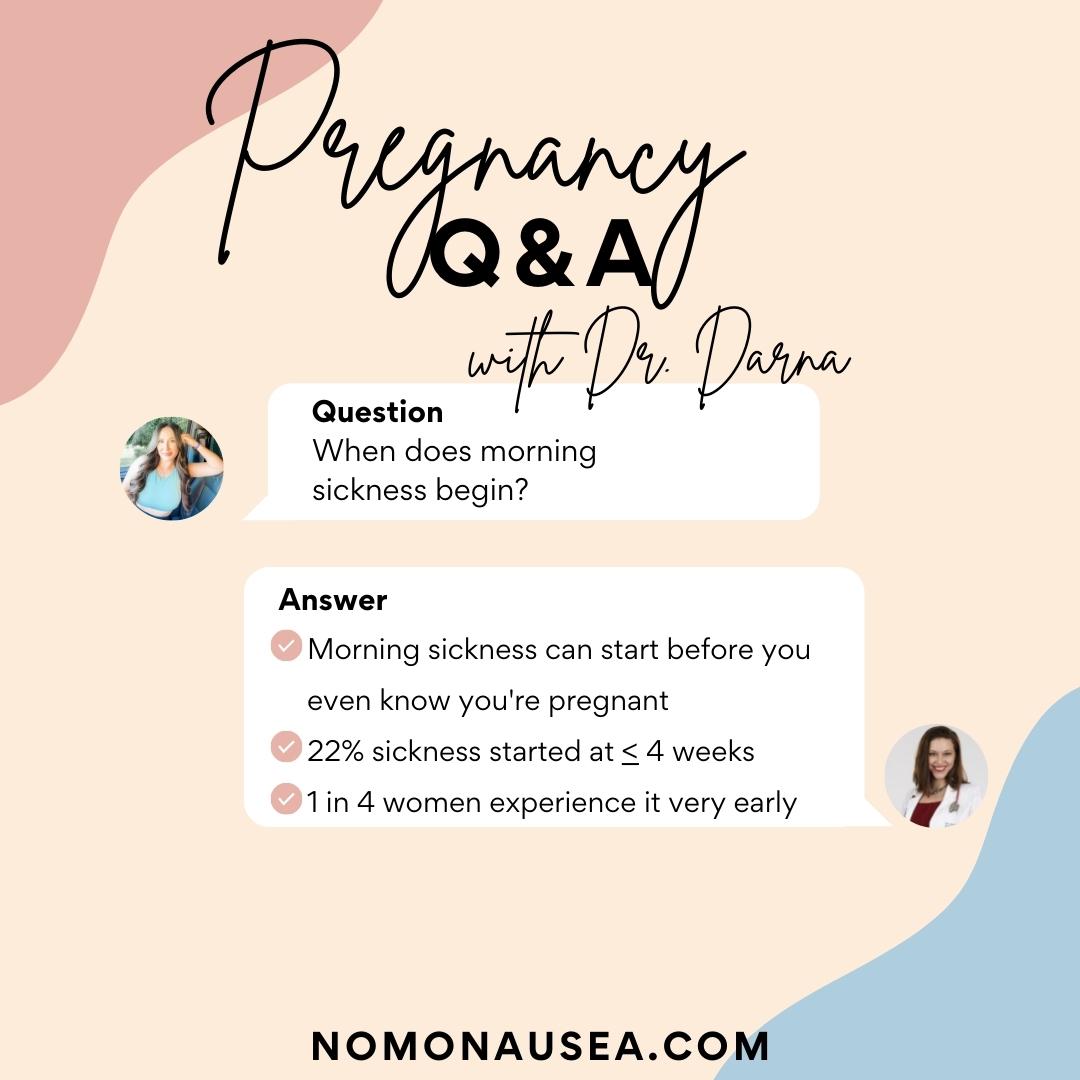
When does morning sickness start?
When Does Morning Sickness Start?
Did you know that up to 80% of women experience morning sickness between their 6th to 14th week of gestation? And only 2% actually suffer from Hyperemesis Gravidarum where hospitalization is required. HCG Human Chorionic Gonadotropin hormone, known as the pregnancy hormones, increase exponentially as the baby grows and is also how when you pee on the stick it knowns your pregnant.
The pectin of apples have been shown useful but when I’m sick the last thing I want is to put anything down in my mouth as food increases stomach acids. Women during pregnancy have an increase in acid reflux, hence the tums next to the night stand. Try acupressure on your wrist at P6 and peppermint essential oil first. Acupressure after 45 minutes helps your body increase anti-nausea hormones helping you to stop your morning sickness by placing the band on at night. Acupressure at P6 has been equivalent to the effects of Zofran, the most commonly prescribed morning sickness medicine, which has been linked to birth defects and heart problems in children of mothers who used the medication during pregnancy. Peppermint essential oil when smelled via aromatherapy helps to stop vomiting immediately because the fastest way into the brain is through the nose. Each technique about 50% effective at reducing morning sickness. And
The Relationship Between Pregnancy Hormones and Morning Sickness
Did you know that the surge in pregnancy hormones, specifically the Human Chorionic Gonadotropin hormone, is responsible for triggering morning sickness in expectant mothers? These hormones increase exponentially as the baby grows, leading to nausea and vomiting for many women.
Acupressure and Essential Oils for Morning Sickness Relief
When it comes to combating morning sickness, natural remedies like acupressure and essential oils can be incredibly effective. Applying pressure to the P6 point on your wrist, also known as the Nei-Kuan point, has been shown to reduce nausea and vomiting. Additionally, inhaling peppermint essential oil through aromatherapy can provide immediate relief from morning sickness symptoms.
The Debate Around Morning Sickness Medications
While Zofran is a commonly prescribed medication for morning sickness, it has been associated with potential risks for birth defects and other complications in children whose mothers used the drug during pregnancy. Many women opt for natural remedies like acupressure and essential oils as safer alternatives to traditional medications.
Managing Morning Sickness With Diet and Lifestyle Changes
Aside from natural remedies, making adjustments to your diet and lifestyle can also help alleviate morning sickness symptoms. Eating small, frequent meals, avoiding spicy or greasy foods, staying hydrated, and getting plenty of rest are all essential for managing nausea and vomiting during pregnancy.
FAQs About Morning Sickness
Q: Are there any foods that can help ease morning sickness symptoms?
A: Yes, foods high in carbohydrates and protein, like crackers, ginger, and citrus fruits, are known to help alleviate nausea and vomiting during pregnancy.
Q: Is it safe to take over-the-counter medications for morning sickness?
A: It's always best to consult with your healthcare provider before taking any medication during pregnancy, including over-the-counter remedies for morning sickness.
Q: How long does morning sickness typically last?
A: For most women, morning sickness peaks around the 9th week of pregnancy and subsides by the end of the first trimester. However, some women may experience symptoms throughout their entire pregnancy.
Buy the Best Motion Sickness Bracelet
NoMo Nausea is a 3 and 1 essential oil infused pressure bracelet that is clinically proven to stop nausea or vomiting in seconds. Imagine a life with a comfortable pregnancy, and enjoyable day at sea, a family fun car trip, or just a hangover free weekend? That's what NoMo Nausea bracelet can do for you. So say no more to your nausea or upset stomach.
You can find NoMo Nausea on https://nomonausea.com and get 25% off with the coupon PUKE25.

Dr. in Naturopathy answers
1. When does morning sickness start in pregnancy? 2. What triggers morning sickness during pregnancy? 3. How to naturally relieve morning sickness symptoms? 4. Can diet and lifestyle changes help manage morning sickness? 5. How long can morning sickness last in pregnancy? Link to blog post: Discover the natural remedies and lifestyle changes that can help relieve morning sickness symptoms in pregnancy, while also learning about when morning sickness typically starts and how long it can last. Explore more similar topics on morning sickness at https://nomonausea.com/blogs/healthandwellness/when-does-morning-sickness-start

